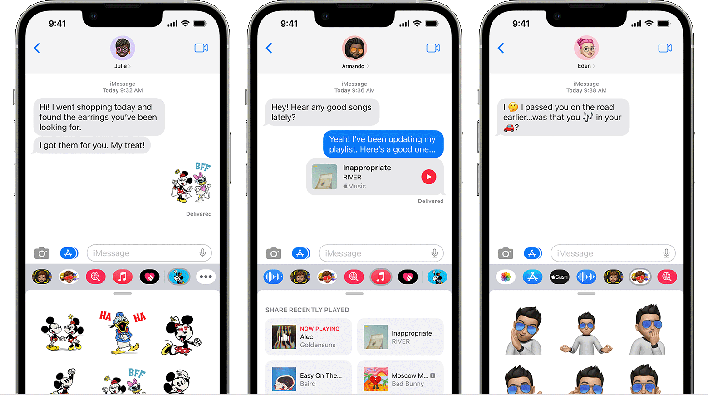This is an announcement that can be filed under “Accidental”. After previously rejecting the offer, Apple has confirmed that it will add RCS support to iPhone, allowing Android users to send feature-rich messages to Apple smartphones. The days of green bubble discrimination are finally over. However, Apple emphasized that iMessage will not disappear.
This has been a headache for everyone without an iPhone for as long as iMessage has existed. When an iPhone user sends a text message to another iPhone, the text message is intercepted and forwarded by Apple’s servers. This is how iMessage adds enhancements like read receipts, typing notifications, and high-resolution media. When an Android phone sends a message to an iPhone, it arrives as a regular text message, with all its limitations. Apple puts this information into green bubbles, allowing its customers to instantly identify (and sometimes discriminate against) Android users.
Apple will deploy support for Rich Communication Services (RCS) in a software update next year, but it will depend on whether carriers make changes. All the latest Android phones support RCS messaging, so Android fans will finally be able to talk to iPhone users with modern features. “Later next year, we will add support for the RCS Universal Profile, which is the standard currently published by the GSM Association. We believe that the RCS Universal Profile will provide a better interoperability experience compared to SMS or MMS. This Will work with iMessage, which will continue to provide Apple users with the best and most secure messaging experience,” Apple told TechRadar.

Technically, Apple isn’t saying the green bubble will disappear — there may still be some visual cues to differentiate iMessage from RCS. We hope that iMessage will have some features not included in the RCS standard, such as emojis, stickers, message recall, and end-to-end encryption. Regarding that last point, Apple has no plans to add its own encryption to RCS, despite its strong focus on privacy. Instead, it hopes to work with the GSMA standards body to implement end-to-end encryption through RCS overall, but that may take time.
Google and Android phone maker Nothing announced a simple way to use iMessage on their phones a few days ago. It’s far from certain that these events had any influence on Apple’s decision. More likely, it calculated that it couldn’t avoid implementing messaging standards forever. Recent regulatory changes in Europe have forced it to move to USB-C, and it’s possible that it may soon be forced to allow third-party apps. Apple may just be getting ahead of regulators this time.